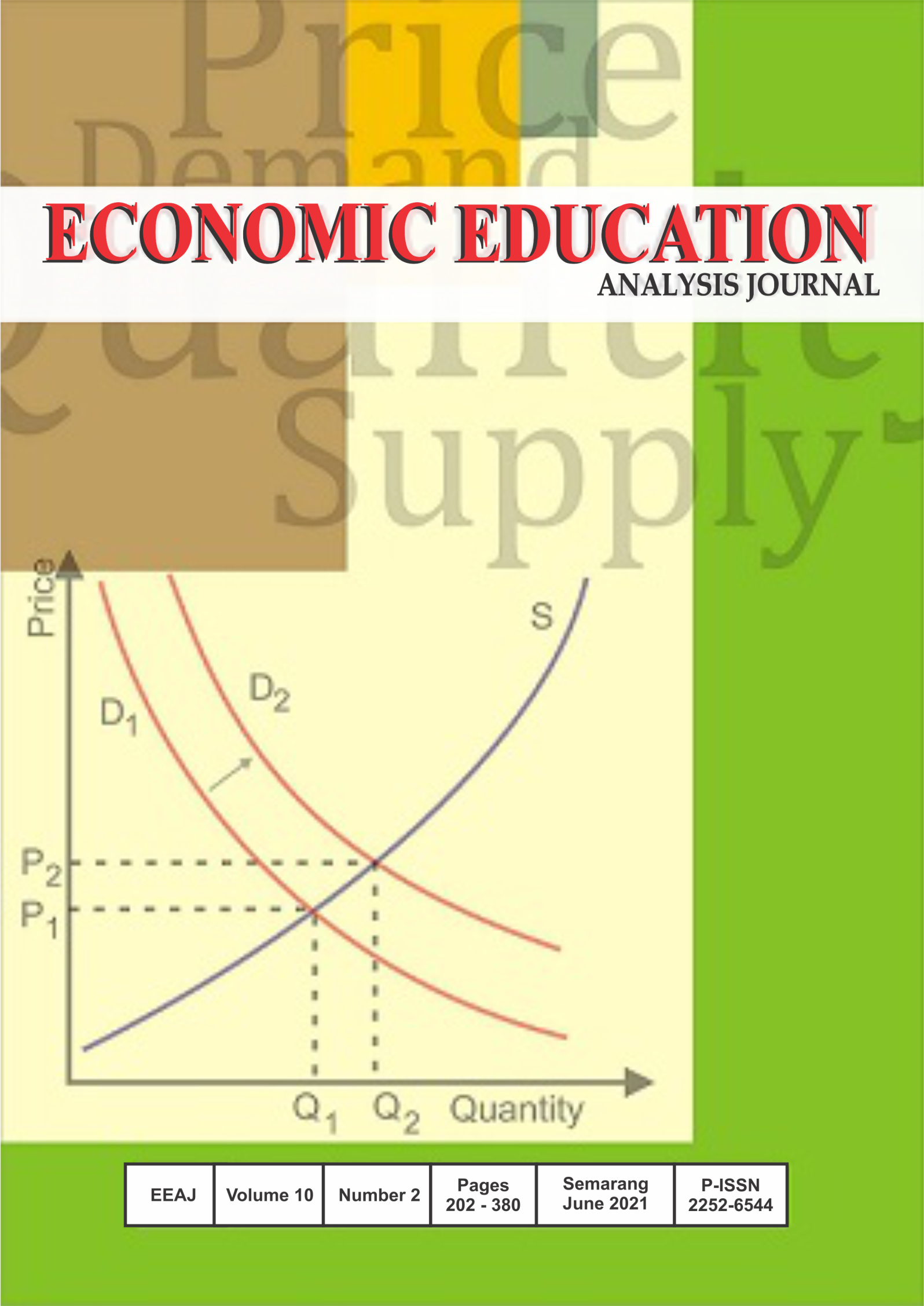Academic Procrastination with Self-Control as Moderator
Main Article Content
Abstract
This study aimed to analyze the direct effect of fear of failure, organizational activeness, and teaching methods of lecturers with self-control as a moderating variable to academic procrastination. The population in this study was 330 students from class of 2017of the Faculty of Economics, Universitas Negeri Semarang. The sampling technique in this study used Stratified Random Sampling and sample size determination used the Slovin Formula with the results of the calculation of 181 students. Data collection techniques used a questionnaire. Data analysis techniques used descriptive statistical analysis and moderation regression analysis models. The results showed that fear of failure and organizational activity had a positive effect on academic procrastination. The teaching method of the lecturer did not affect academic procrastination. Self-control could moderate the effect of fear of failure on academic procrastination. Self-control could not moderate the effect of organizational activity and teaching methods of lecturers on academic procrastination. Suggestions from this research are students need to develop soft skills and increase confidence in their ability to reduce fear of failure in the future. Students can divide the time between the organization and lecture assignments so that students do not neglect each lecture assignment, so academic procrastination can decrease. For further research, self-control variables can be used as a mediating variable.
